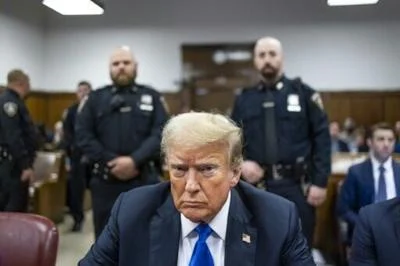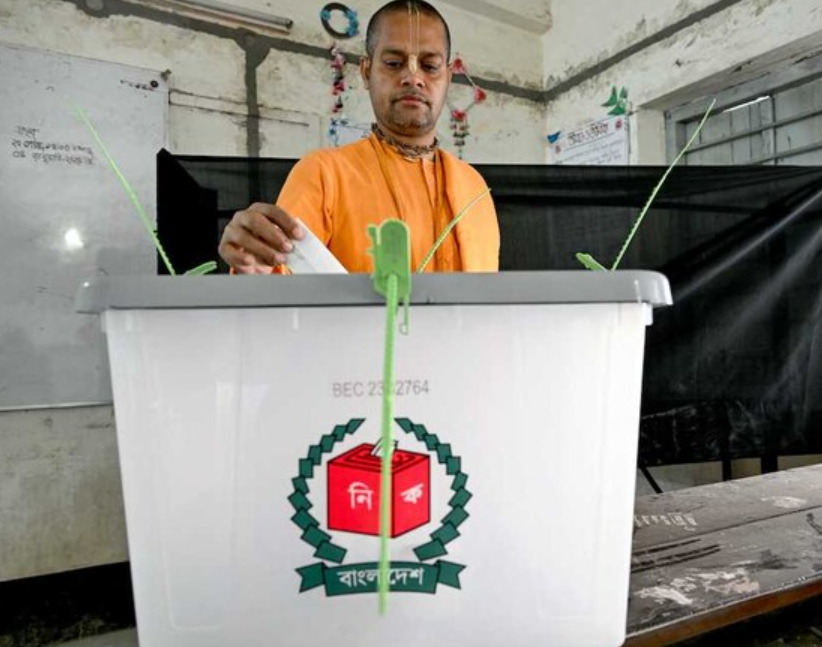Supreme Court Rejects Donald Trump’s Bid to Delay Sentencing in Hush Money Case
In a landmark decision, the U.S. Supreme Court has declined to halt the sentencing of President-elect Donald Trump in the New York hush money case. The court, in a narrow 5-4 ruling, dismissed Trump’s appeal to postpone the upcoming sentencing, paving the way for him to be the first U.S. president to assume office with a criminal conviction. Trump’s legal team is expected to file a review petition.
After the Thursday evening ruling, Trump commented indirectly about Judge Juan Merchan, stating, “We will appeal regardless—purely as a matter of principle. It’s a disgrace, and this is a judge who should never have been on this case.”
Background of the Case
Trump, who is set to take the presidential oath for a second term on January 20, sought the Supreme Court’s intervention to overturn the sentencing scheduled for Friday. Previously, New York courts had also rejected efforts to delay sentencing by Judge Juan Merchan, who presided over the trial last May. The trial involved 34 counts of falsifying business records related to hush money payments.
A Historic First
Judge Merchan has clarified that he will not impose jail time. However, a criminal conviction will still make Trump the first U.S. president to hold office with such a record.
Trump’s Legal Team’s Stance
Trump’s attorneys argued that both Judge Merchan and the intermediate appellate court had “wrongfully failed” to block the sentencing. They claimed that the conviction carries significant repercussions, including diverting Trump’s attention from the presidential transition.
Supreme Court Split
Interestingly, two conservative justices—Chief Justice John Roberts and Justice Amy Coney Barrett—joined the liberal justices in denying Trump’s request. Roberts, who will administer Trump’s oath of office, aligned with the majority despite being appointed by a Republican administration. The court’s four other conservative justices were speculated to support Trump’s appeal.
Allegations of Political Bias
Trump’s lawyers have consistently maintained that the case is politically motivated, stating that it could disrupt the Republican transition as Trump prepares for his return to the presidency. Deputy Attorney John Sauer, who is Trump’s nominee for Solicitor General, called the sentencing “grossly unjust.”
What Is the Hush Money Case?
The case dates back to May 2023, when a New York jury indicted Trump on 34 counts related to hush money payments to adult film actress Stormy Daniels during the 2016 presidential campaign. Daniels claimed Trump paid $130,000 to silence her about their alleged affair, which Trump has repeatedly denied.
A Twist of Irony
Despite being considered the weakest of the four criminal cases Trump faced before the election, the hush money case is the only one to have resulted in sentencing.
Other Legal Challenges
Trump has weathered several legal battles, including:
- Election Interference Case: A federal judge dismissed the case alleging interference in the 2020 election, citing lack of grounds for prosecution.
- Classified Documents Case: Charges related to classified documents at Trump’s Florida residence were dismissed after a judge ruled the special counsel’s appointment unconstitutional.
- Georgia Election Case: Allegations of meddling in Georgia’s 2020 election remain stalled due to disqualifications and procedural delays.
Trump Suffers Another Legal Defeat
In a separate ruling, a federal appeals court denied Trump’s request to block the Justice Department from releasing a report by Special Counsel Jack Smith. However, the court granted a three-day delay for further appeals, and Trump’s lawyers plan to take the matter back to the Supreme Court.
Implications
This latest ruling amplifies the legal and political hurdles Trump faces as he prepares for his second term. While his supporters decry the case as politically motivated, it underscores the challenges of navigating both public office and criminal proceedings.














Post Comment